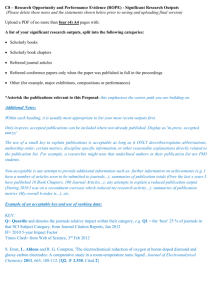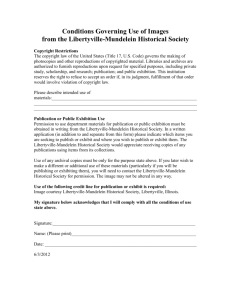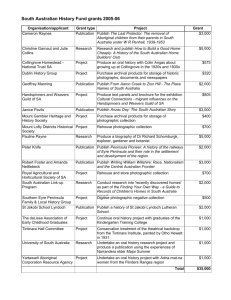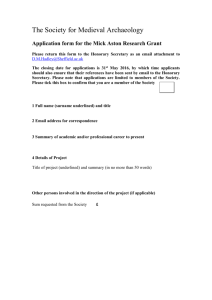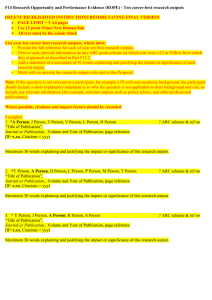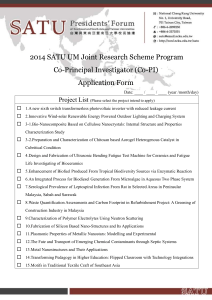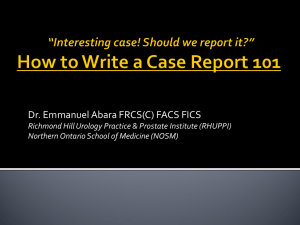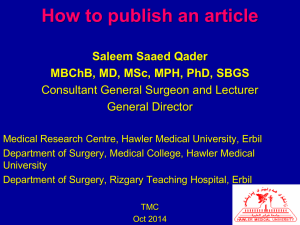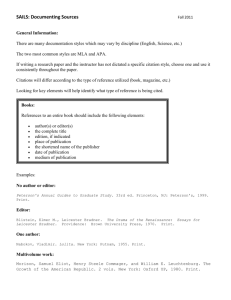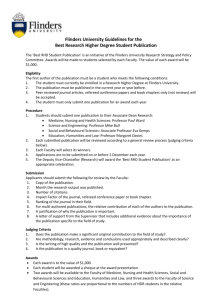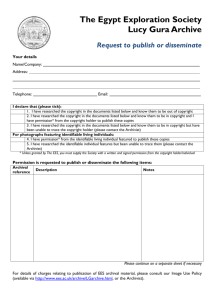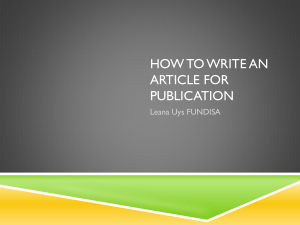What is 1* to 4* publication quality in REF
advertisement
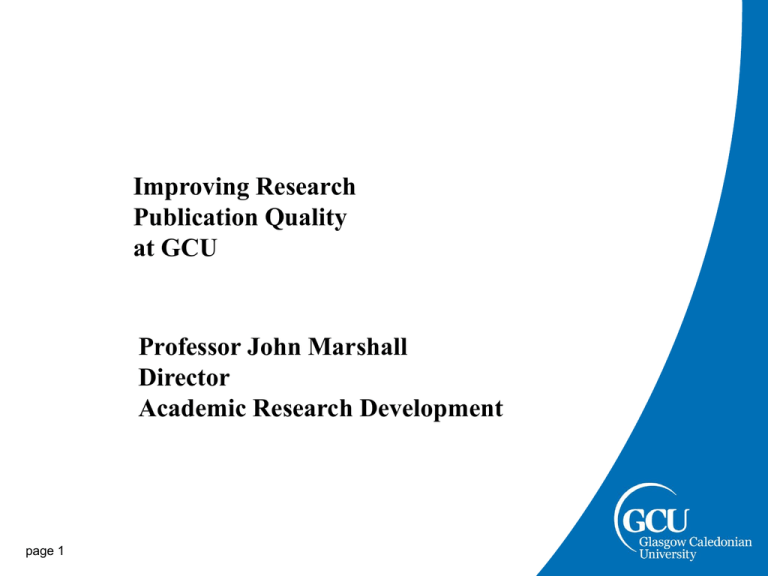
Improving Research Publication Quality at GCU Professor John Marshall Director Academic Research Development page 1 What is 1* to 4* publication quality in REF? 4* world leading in terms of originality, significance and rigour 3* internationally excellent 2* internationally recognised 1* national level of excellence u/c unclassified page 2 Where should I publish? Academic journals Books and book chapters Monographs Conferences Open source repositories/GCU repositories On line or in print Professional journals Trade journals Newspapers, magazines, blogs Research Reviews Education, teaching and scholarship page 3 What makes a good REF publication? High journal impact factor Citation evidence of impact Publication reputation is important Specialist versus general audience Leads in originality significance and rigour ! Impact beyond academia ! page 4 What makes a poor REF publication? Work lacking in originality significance or rigour Following others in terms or theory or practice Failure to cite relevant state of the art academic literature Publishing in low circulation or poor impact journals Low levels of citation by other workers Not supported by other indicators (e.g. esteem) page 5 How do I improve my publication quality? Read and cite the relevant literature, putting the state of the art in perspective and relate your work to it Clarify the aims and objectives and provide references to relevant literature emphasising only what is original or significant in your own work Only include material that advances understanding Draw conclusions justified by the evidence Look outside your field for ideas of how to describe the impact of your work Get a peer to read your paper before you submit it page 6 Other tips on publishing Use keywords that attract readers (e-searches) Use the abstract as a window on your work to attract interest Publish collaboratively Publish where the best in the field publish or in another field where your work may have relevance Never be discourteous to the work of others in print Acknowledge the contributions of others, including funders and sponsors page 7 Dealing with referees comments on your publication Do: Read the referee’s comments properly Make arguments logically with reference to evidence where possible rather than opinion Argue positively and assertively rather than negatively Seek to address those points which are critical to preventing publication Ask for a second opinion from a colleague at GCU Be unbelievably reasonable page 8 Dealing with referees comments on your publication Don’t: Get personal Argue negatively about opinions Miss the main argument or focus on minor issues Don’t try to win every point – concede generously page 9 Joining up Research Activity with Impact Does my published output relate to my grants ? Does the impact of my research go beyond academe? How do I disseminate the results of my research? Are beneficiaries aware of my research? Do I publish in non-academic outlets also? page 10 THANK YOU FOR YOUR ATTENTION I WOULD BE HAPPY TO ANSWER ANY QUESTIONS YOU MAY HAVE page 11
